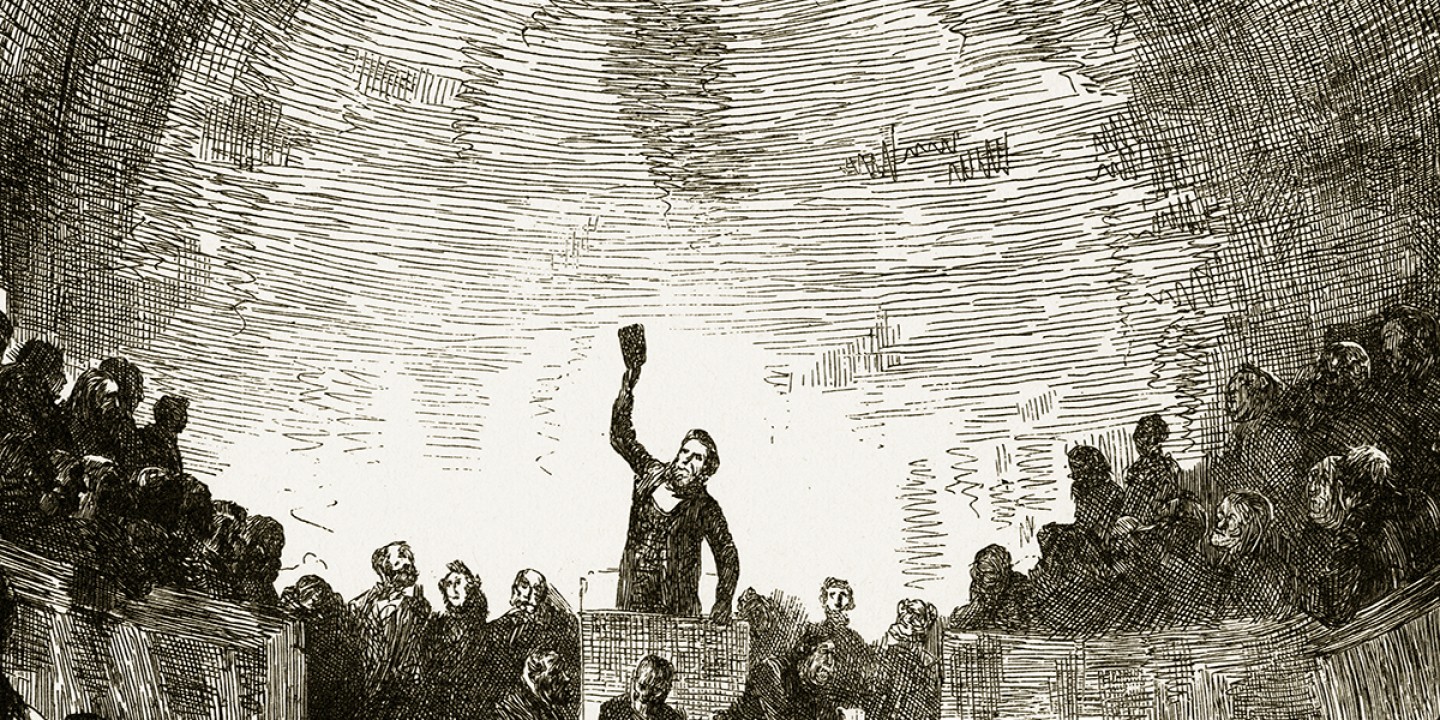The old “distraction” slur against advocates for justice
This line of attack goes back to the White Christian opponents of the 19th-century abolition movement.

The recent Guidepost Solutions report on sexual abuse in the Southern Baptist Convention revealed that August Boto, a key leader on the SBC Executive Committee, labeled the work of advocates on behalf of survivors of sexual abuse as a “satanic scheme to completely distract us from evangelism,” in an internal email. “It is not the gospel. It is not even a part of the gospel. It is a misdirection play,” Boto wrote.
Boto’s branding of this advocacy work as a satanic scheme is horrific. Silencing and vilifying survivors and their advocates in the name of Christ does damage to the faith of survivors and the soul of the church. However, I want to zero in on something else he said: his hard distinction between the gospel and advocacy for justice. Why do evangelical leaders so often condemn the second as a distraction from the first?
Read our latest issue or browse back issues.
Antiracism work has been criticized by Christians in similar ways. For example, in a public dialogue on “woke church” hosted by the Gospel Coalition, a pastor derided “wokeness, critical theory and social justice activism” as “gospel compromise.”
Other censures are subtler. In a sermon I was present for, a well-known leader first acknowledged that racism is indeed evil. And yet, he urged, the church should stay focused on the gospel. Too much attention to racism is a “distraction from the gospel.” While this sermon may appear less offensive on the surface than some others, it is also more difficult for the person in the pew to untangle.
Perhaps this is the rift that a lot of activists do not understand: When the gospel is defined narrowly as Christ’s work on behalf of sinners—and gospel work as evangelism—then while a little social justice may be acceptable, a lot may be a distraction. Others, perhaps more thoughtfully, may understand the gospel as the Lordship of Christ. Yet if Christ’s Lordship is shorn of any ethical content, the rift remains.
This distraction argument is not new. Similar cases were made against the abolition movement’s call for the end of slavery in the United States.
Early 19th-century White Christians had a diversity of opinions on slavery. And yet, as historian Ben Wright writes, “Nearly all denominational leaders actively denounced abolitionists as opponents of American salvation.”
White Christian leaders tended to favor what Wright calls “conversionism” over the “purificationism” of the abolitionists. Conversionism meant evangelizing the nation and the colonies—including slaves. “Conversionism became the core of proslavery Christianity,” says Wright.
Charles Hodge, an eminent father of Reformed systematic theology, represents a paternalistic form of conversionism. If slaves would only act in conformity with the gospel (there’s that word), not refusing to be slaves but serving with a sincere desire to do their duty as slaves, then slavery itself would “naturally” come to an end, he wrote in his Ephesians commentary.
The abolitionists were the problem, White Christian leaders claimed. According to Wright, they argued that abolitionists “distort the message of Christianity into antislavery propaganda.” It is sobering to realize that the greatest threat to abolition was not the 19th-century version of alt-right White supremacists. It was the conversionists, the moderate White Christians.
It’s a distraction from the gospel. The phrase echoes through time uneasily. How are we to understand its resonance? When the gospel is elevated in a way that dulls the sharp edge of compassion and justice, we are compelled to ask: So what is the gospel?
To be sure, the gospel announces pardon for sin, won by Christ (Mark 15:31b–32). And yet, the gospel is also God’s victory over death, Satan, and evil in all its forms (Col. 2:15). The gospel of Christ triumphs “as far as the curse is found,” as Isaac Watts put it. Surely this circle of redemption includes racism, sexual abuse, slavery, and injustice in all its forms.
Black thinkers in the early 19th century—such as Zilpha Elaw, David Walker, Jarena Lee, and James Pennington—rightly understood that the gospel challenges every manifestation of evil. They denounced as evil the pro-slavery gospel that undergirded slavocracy. They also argued that the gospel was not neutral in the face of grave injustice and human suffering. “The gospel rightly understood, taught, received, felt and practised, is anti-slavery as it is anti-sin,” Pennington wrote.
Pennington’s words can help us to clear the air that plagues discourse around justice advocacy today—whether antiracism, advocacy for survivors of sexual abuse, or something else. Many White Christian leaders argue that much justice advocacy is built not upon the Bible but upon secular ideologies. And yet, Black thinkers, among others, have been challenging systemic racism from scripture for centuries. Pennington did not give up on the gospel and on scripture in light of the pro-slavery gospel; he reclaimed it and found the tenderness of Christ there.
In arguing that advocating for survivors of sexual abuse is a satanic scheme that distracts from evangelism, August Boto tore apart what belongs together: evangelism and discipleship, speaking and doing, love and truth, tenderness and invitation, creation and redemption. He abstracted the good news from the tenderness of Christ, with the effect that it’s not good news anymore.
The gospel is comprehensive in its scope, calling Christ followers to live as a sign to God’s restoring rule in Christ. We can hold life, word, and deed together. Indeed, Black Christian abolitionists also called many of their hearers to Christ, declaring that a slave’s ability to convert displayed their human agency and freedom in Christ.
The church today has an opportunity to display the tenderness of Christ to our communities, by advocating for survivors of sexual abuse and discerning where racism is at work in our histories and communities. As we do, people get curious, inquiring into what motivates us and what sustains our labor. We can respond with confidence that Jesus does.





